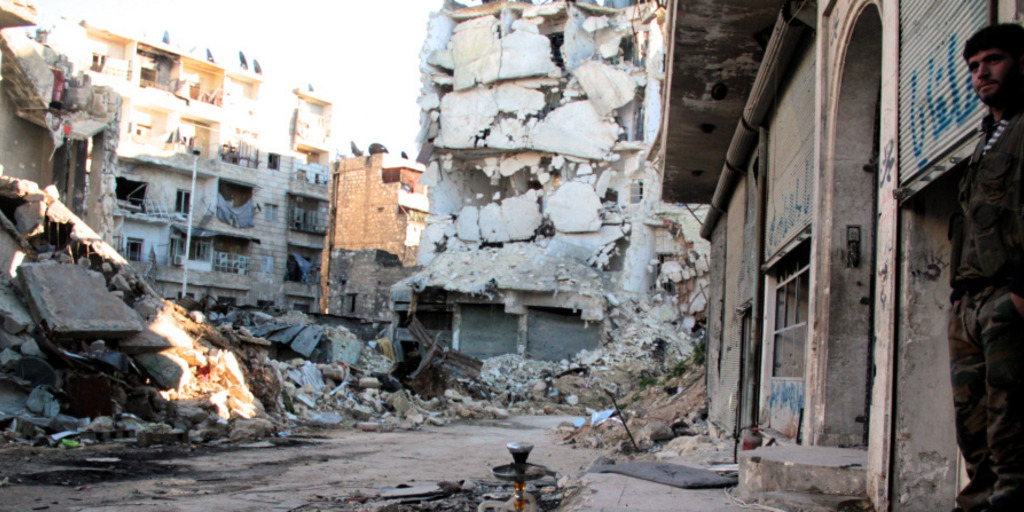Syria began experiencing numerous problems and conflicts in the 1980s. The resulting pressures grew and ultimately led to a revolt among parts of the population against the Assad dictatorship. In 2011, peaceful protests began to take place, first in rural areas, then in the country’s major cities. Assad used violence to suppress the protests, provoking a civil war.
Syria is now in its fifth year of warfare. Hundreds of thousands have died, millions have been displaced and much of the nation’s infrastructure has been destroyed. The country is disintegrating into individual areas controlled by rival groups who are fighting each other using extreme violence. The situation in the refugee camps in neighboring countries is catastrophic. The United Nations lacks the money and material resources to ensure humane conditions for the people living there.
In Syria, Kurdish fighters and secular rebels are the only ones combating the so-called Islamic State (IS), which has quickly been able to infiltrate the region thanks to the civil war. The shocking tactics used by IS include beheadings, mass executions, enslavement of women and the destruction of cultural sites that are thousands of years old. Assad’s militias, on the other hand, are terrorizing the civilian population through the use of barrel bombs and other violent means. The dictator’s aerial raids are the main reason that Syrians are fleeing the country.
Russia has recently intervened in the conflict, bombing mostly areas held by more moderate rebel groups who are fighting both Assad and IS. That means Moscow is now also openly involved in Syria’s civil war, along with the United States and other western nations, in addition to Kurdish groups, Saudi Arabia, Iran and Turkey.
Our Middle East expert, Christian-Peter Hanelt, examines the current situation in Syria, explaining which rivalries are preventing the conflict from being resolved and discussing how, in the short term, Syrians’ suffering can be reduced and, in the long term, the war brought to an end.
Please find the complete analysis here:




